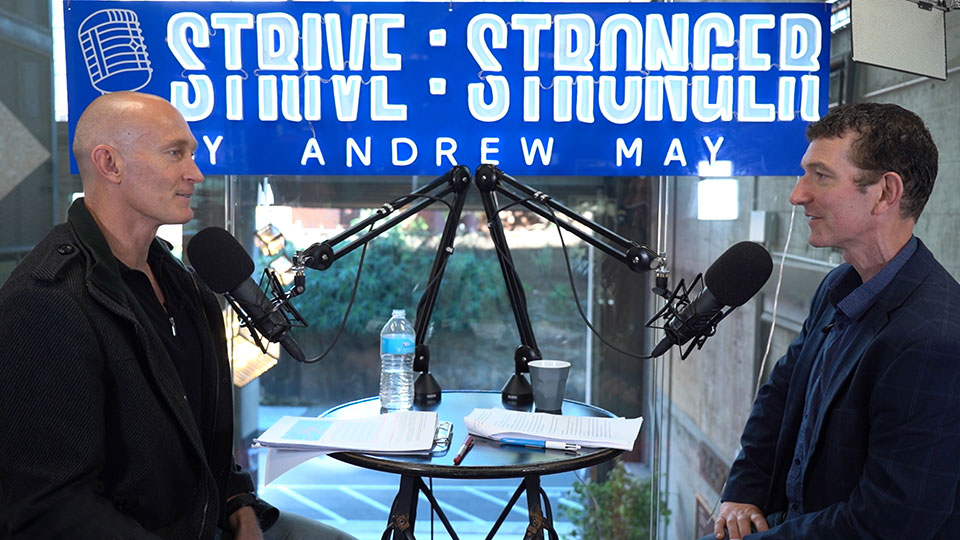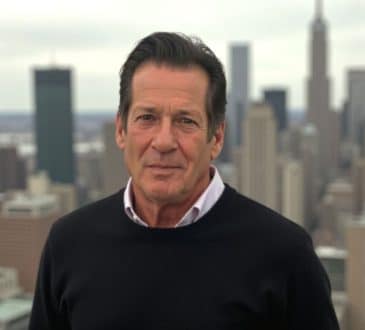5 Factors That Inoculate You Against Burnout

Achieving success in your career is a fine dance between pushing yourself to bend but not break. The upheaval of the COVID-19 pandemic has however pushed more people to breaking point and burnout among Australia’s workforce is skyrocketing.
Having spent the last 25 years working with CEOs and many of the country’s top executives, entrepreneurs, the military and elite athletes, I have discovered what it takes to stretch without snapping and can confidently say that if you build these 5 factors into your life you will not burn out.
Purpose Alignment
Alignment of purpose with personal values and associating meaning with work has strong links to improving satisfaction with life. When you ask yourself “Beyond earning money, why am I working? Why am I here?” and you have a clear answer, you not only feel better about yourself and your life, you generate a kind of force field that protects you from some of the harsher effects of stress. Specific to preventing burnout, understanding why you are doing what you do is vital.
A sense of purpose can also help you to prioritise, to delegate, to say ‘no’ and to make time for the aspects of your role that refresh your spirit. Finding your sense of purpose is the essential first step to building connections with people, community and nature – a foundation to preventing burnout.
Active Recovery
Physical relaxation and switching off psychologically are key to sustaining energy levels, reducing fatigue, nurturing creativity, and enhancing emotional intelligence.
Recovery benefits the body and brain, creating physical and psychological detachment from the stresses of your working day. Recovery expels stress hormones from the body and soothes us from Gamma (problem-solving and concentration) and Beta brainwaves (a busy, active mind) to Alpha (restful and reflective) and eventually Delta (sleeping and dreaming). As this happens, your brain’s electrical activity in the form of brainwaves, is literally slowing down. If it feels like active recovery is cooling down an overheated system, that’s because it is.
Active recovery should be seen more as a form of detachment or play, rather than physical training or an exercise stressor. Examples include walking in nature, swimming, yoga or tai chi, saunas or hot and cold showers, gardening or cooking, guided editation/mindfulness exercises. And creative activities including painting or playing music.
Restorative Sleep
Quality restorative sleep is vital to recovery, hormone balance, brain function and memory. Sleep is a form of true passive recovery. It is indisputable that sufficient, restorative sleep plays a critical role in maintaining physical and psychological wellbeing. Sleep allows the body’s cells to repair and rejuvenate. Many of the restorative functions in the body – including muscle growth, tissue repair, protein synthesis, and growth hormone release – occur mostly, or in some cases only, during sleep. Without adequate sleep the body doesn’t recover properly, resulting in short-term reductions in cognitive processing, memory and skill acquisition, and increased risk of fatigue, burnout and illness.
Our experience shows people have a tendency to sacrifice sleep in order to get more work done. Sleep is so crucial that even slight sleep deprivation or interrupted sleep impacts memory, judgment and mood state. Insufficient sleep time and poor quality sleep are associated with low stress resilience and non-adaptive coping whereas consistent quality sleep creates a buffer against ongoing daily life stressors and risk of burnout.
Physiological Capacity
Optimal physiological capacity refers to the body’s ability to have reserves and adapt in a range of situations, especially in response to challenging tasks or stressful times.
We are not just brains on a stick. Science has proven people with poor physiological capacity have lower stress resilience and reach stress thresholds way quicker. Lower physiological capacity also impacts recovery time.
“After assessing thousands of corporate workers in our lab we know higher cardiorespiratory fitness (measured as VO2 max) is associated with lower symptoms of stress-related exhaustion, creating a buffer against burnout. Optimal cardiorespiratory fitness helps buffer against increased blood pressure, elevated resting heart rate, raised blood sugar and increased inflammation markers, all burnout related physiological disturbances,” reports our research director and global authority on stress and wellbeing, Dr Tom Buckley.
Social Connectedness
Flourishing relationships and connection with community are fundamental to pleasure, meaning and fulfilment in life.
Human beings crave connection. For thousands of years, we have lived and worked in communities. It’s fundamental to the way we experience the world. Loneliness and limited social connection is are linked with poorer mental and physical health, with social connection being a greater determinant to overall health than obesity, smoking and high blood pressure.
People low in social connection report more vulnerability to anxiety, depression and anti-social behaviour. Conversely, working on social connections, especially long-term friendships that go back to our youth, provide emotional stability, a sense of shared history and anchor us especially during challenging times. Being connected to others gives us purpose, meaning and pleasure, higher self-esteem and empathy, all buffers against burnout.
Written by Andrew May.
Bring the best of the CEOWORLD magazine's global journalism to audiences in the United States and around the world. - Add CEOWORLD magazine to your Google News feed.
Follow CEOWORLD magazine headlines on: Google News, LinkedIn, Twitter, and Facebook.
Copyright 2025 The CEOWORLD magazine. All rights reserved. This material (and any extract from it) must not be copied, redistributed or placed on any website, without CEOWORLD magazine' prior written consent. For media queries, please contact: info@ceoworld.biz








